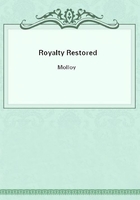
第61章 CHAPTER X.(7)
In consequence of this duel the Duke of Buckingham absented himself from the capital; but two months after its occurrence King Charles was pleased, "in contemplation of the services heretofore done to his majesty by most of the persons engaged in the late duel or rencontre, to graciously pardon the said offence." Three months after the day on which he fought, Lord Shrewsbury died from effects of his wounds, when the duke boldly carried the widow to his home. The poor duchess, who had patiently borne many wrongs, could not stand this grievous and public insult, and declared she would not live under the same roof with so shameless a woman. "So I thought, madam," rejoined her profligate lord, "and have therefore ordered your coach to convey you to your father."The countess continued to live with her paramour; nor was the court scandalized. The queen, it is true, openly espoused the cause of the outraged duchess, and sought to enlist sympathy on her behalf; but so low was the tone of public morality that her words were unheeded, and no voice was raised in protest against this glaring infamy. Nay, the duke went further still in his efforts towards injuring the wife to whom he owed so much, and who loved him over-well; as he caused his chaplain, the Rev.
Thomas Sprat, to marry him to my Lady Shrewsbury; and subsequently conferred on the son to which she gave birth, and for whom the king stood godfather, his second title of Earl of Coventry. His wife was henceforth styled by the courtiers Dowager Duchess of Buckingham. It is worthy of mention that the Rev. Thomas Sprat in good time became Bishop of Rochester, and, it is written, "an ornament to the church among those of the highest order."One of the most extraordinary characters which figured in this reign was Thomas Blood, sometimes styled colonel. He was remarkable for his great strength, high courage, and love of adventure. The son of an Irish blacksmith, he had, on the outbreak of civil warfare in his native country, joined Cromwell's army; and for the bravery he evinced was raised to the rank of lieutenant, rewarded by a substantial grant of land, and finally made a justice of the peace. At the restoration he was deprived of this honour, as he was likewise of the property he called his, which was returned to its rightful owner, an honest royalist. Wholly dissatisfied with a government which dealt him such hardships, he organised a plot to raise an insurrection in Ireland, storm Dublin Castle, and seize the Duke of Ormond, then lord lieutenant. This dark scheme was discovered by his grace;the chief conspirators were accordingly seized, with the exception of Blood, who succeeded in making his escape to Holland. His fellow traitors were tried and duly executed.
From Holland, Blood journeyed into England, where, becoming acquainted with some republicans, he entered into projects with them calculated to disturb the nation's peace; which fact becoming known, he was obliged to seek refuge in Scotland. Here he found fresh employment for his restless energies, and in the year 1666 succeeded in stirring up some malcontents to rebellion.
The revolt being quelled, he escaped to Ireland; and after a short stay in that country returned once more to England, where he sought security in disguise.
He lived here in peace until 1670, when he made an attempt no less remarkable for its ingenuity than notable for its villainy.
Towards the end of that year the Prince of Orange, being in London, was invited by the lord mayor to a civic banquet.
Thither the Duke of Ormond attended him, and subsequently accompanied him to St. James's, where the prince then stayed. Ashort distance from the palace gates stood Clarendon House, where the duke then resided, and towards which he immediately drove, on taking leave of his royal highness. Scarce had he proceeded a dozen yards up St. James's Street, when his coach was suddenly stopped by a band of armed and mounted men, who, hurriedly surrounding his grace, dragged him from the carriage and mounted him on a horse behind a stalwart rider. Word of command being then given, the gang started at a brisk pace down Piccadilly.
Prompted by enemies of the duke, as well as urged by his own desires to avenge his loss of property and the death of his fellow-conspirators, Blood resolved to hang him upon the gallows at Tyburn. That he might accomplish this end with greater speed and security, he, leaving his victim securely buckled and tied to the fellow behind whom he had been mounted, galloped forward in advance to adjust the rope to the gallows, and make other necessary preparations.
No sooner did the echo of his horse's hoofs die away, than the duke, recovering the stupor this sudden attack had caused, became aware that now was his opportunity to effect escape, if, indeed, such were possible. He to whom his grace was secured was a burly man possessed of great strength; the which Lord Ormond, being now past his sixtieth year, had not. However, life was dear to him, and therefore he began struggling with the fellow; and finally getting his foot under the villain's, he unhorsed him, when both fell heavily to the ground. Meanwhile his grace's coach having driven to Clarendon House, the footmen had given an account of the daring manner in which his abduction had been effected. On this an alarm was immediately raised, and the porter, servants, and others hastened down Piccadilly in search of their master, fast as good horses could carry them.